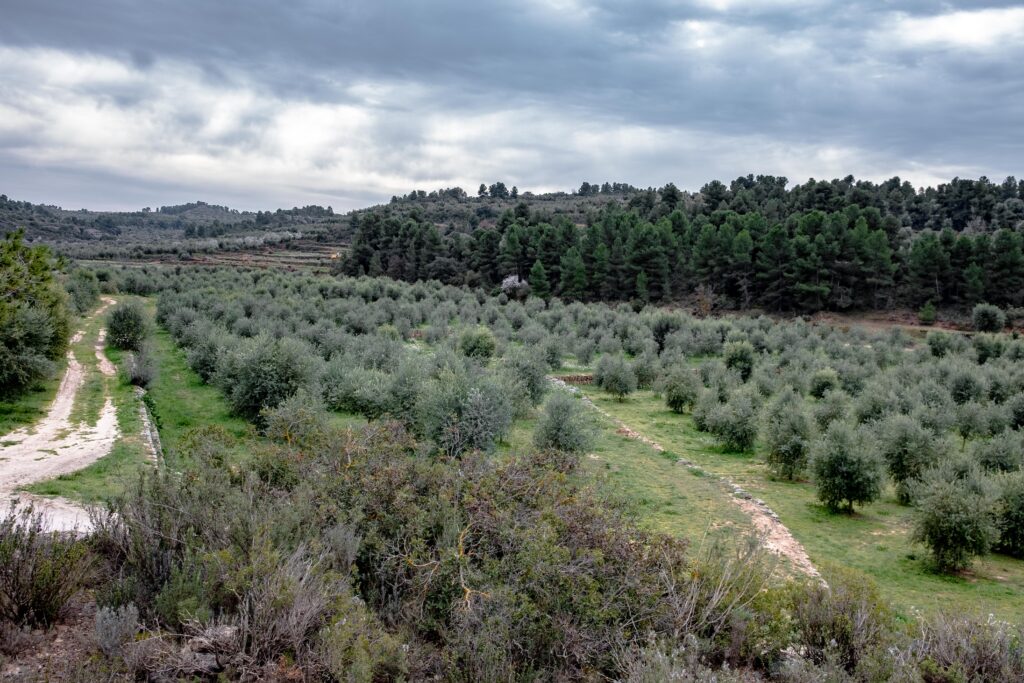Soil is not only a physical medium used by plants as a support, it is a non-renewable natural resource and a fundamental axis in the balance of all ecosystems. The life of our planet depends on it and its rapid degradation compromises its capacity to satisfy the needs and well-being of future generations. Pollution from agriculture and livestock due to unsustainable activities together with the abandonment of traditional agricultural activities deteriorates the landscape and the productive capacity of our soils.
Furthermore, the change in climate patterns is generating an increase in the frequency and intensity of adverse phenomena that make it difficult for crops to adapt, which is why adapting a resilient model to agricultural production systems that reduces production risk and business uncertainty is now a necessity.
One of the most difficult problems we face in our PONS olive groves is the loss of soil due to erosion which, together with the increasingly prolonged periods of drought and the intensification of rainfall, make the implementation of management systems that protect our plantations essential. Most of these measures correspond to favoring or not interrupting the natural processes occurring in PONS plantations.
Although soils have traditionally been kept bare through tillage processes, at Pons we maintain all our estates with plant cover typical of olive groves or by planting different species. At PONS, this gives structure to the soil, increasing its water retention capacity in order to face periods of drought more efficiently and protect our soils from erosion due to runoff. In addition, the fact that our olive groves rest on a diverse vegetation cover improves the nutritional aspects of the soil and helps us to reduce the need for organic amendments. It is important to leave the pruning remains on the ground to maintain fertility and improve water infiltration.
The care of the canopies is mainly based on two general aspects: preventing vegetation from competing with the olive grove for soil resources by using mechanical processes and selecting the species of interest that we want to keep in the crop lanes with selective mowing. The importance of the timing of each mowing is fundamental to favor the multiplication of some species over others in order to achieve canopies of high agronomic interest and which require low maintenance. This cultivation system requires constant learning and a great knowledge of the territory where we carry out our activity.
All these good agricultural practices of PONS are meaningless if agricultural production is not based on organic farming that respects the biodiversity of the environment. The very ecosystem that we maintain in our olive groves helps us to coexist with pests and diseases that in other areas have to be treated conventionally. The high population of natural enemies or auxiliary fauna in our fields are our best tool to achieve healthy olives without chemical residues that compromise the quality of PONS olive oils.
Xavier Gainzarain, Agricultural Director of PONS


 Català
Català